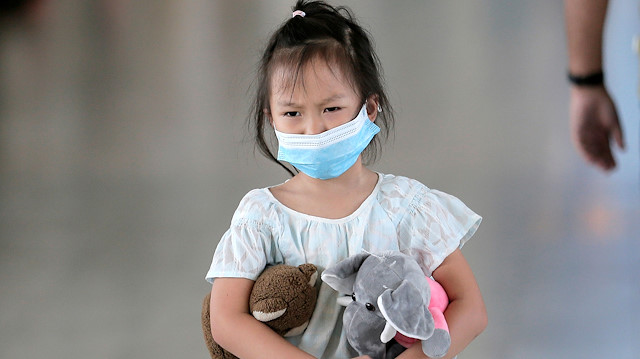
China formed a research team of 14 experts to help prevent and monitor a recent outbreak of an infectious coronavirus, according to the country's Ministry of Science and Technology said Friday.
As part of an emergency sci-tech project by the ministry, the team will conduct scientific and technical research on the virus's identification, and transmission, as well as methods of diagnosis, genome evolution and the production of vaccines.
Zhong Nanshan, a pivotal figure in China's response to the severe acute respiratory syndrome (SARS) epidemic in 2003, will lead the research team.
- New hospital to address coronavirus cases
China has vowed to build a new 1,000-bed hospital within six days in Wuhan, the capital of central China's Hubei Province, the epicenter of the epidemic.
The facility, which is planned to be finished before Feb. 3, will be the same design as a Xiaotangshan Hospital built in 2003 in Beijing in response to the SARS outbreak. It will be located on a roughly 270,000-square-foot (25,000 square meters) site and will be designed specifically to contain and treat the virus.
- 26 people dead, 881 infected
So far, 26 people have died in the coronavirus outbreak in mainland China, with most cases recorded in the central Hubei province.
The symptoms of the mystery virus resemble those of pneumonia, causing massive outcry in China as the country prepares to hold New Year celebrations on Saturday.
At least 24 patients died in Hubei province, while one death was reported from China's northeastern Hubei province.
Chinese health officials on Friday confirmed that 881 people have contracted the virus, CGTN news reported.
- Originated in Wuhan
The virus originated in Wuhan city -- the capital of Hubei -- and has now spread across 29 provinces in the country. At least 14 cases were reported in Japan, South Korea, Thailand, the U.S., Singapore and Vietnam.
One case was also confirmed in north China's Inner Mongolia Autonomous Region.
Beijing has recorded 29 cases of the virus as of Friday.
Five confirmed cases of the new virus were reported in the autonomous regions of Hong Kong and Macao, as well as in Taiwan, which Beijing sees as a breakaway province.
The World Health Organization (WHO) held a meeting on the virus in Geneva on Thursday. However, it did not declare the outbreak as an international emergency.
Chinese officials said they had investigated 9,507 cases of "close contacts" of patients, with 8,420 among them held under medical observation while 1,087 others were discharged.
- Flights, transport suspended
China issued a transport ban in 13 cities including Xianning, Xiaogan, Enshi and Zhijiang -- all located in the central Hubei province, where the virus first emerged.
Many airlines have suspended their flights to Wuhan due to fear of transmitting the virus to other areas, while Beijing has canceled large-scale activities in view of the New Year celebrations.
Wuhan shut down public transport to prevent further spread of the fatal virus.
The Spring Festival, or Chinese Lunar New Year, falls on Jan. 25 this year. The celebrations often feature temple fairs, sports and exhibitions, usually held in Beijing during the holiday.
Travelers from China are being screened at several airports across the world in the wake of a deadly viral outbreak. Turkey has decided to scan all passengers traveling from China with thermal cameras at airports.
The WHO says Chinese authorities believe a new coronavirus from the family that produced SARS (Severe Acute Respiratory Syndrome) and MERS (Middle East Respiratory Syndrome) may be the cause of the mysterious pneumonia cases.
During an epidemic of SARS in 2003, more than 700 people -- mostly in Asia -- lost their lives.
- Bats likely natural reservoir
Researchers have found a key protein essential for the coronavirus to infect humans, indicating that a possible natural reservoir of the virus may be bats.
Chinese investigators revealed that the virus was transmitted to humans through "wild animals."
The virus causes high fever, coughing and shortness of breath at the first stage, while in later stages it causes pneumonia, kidney failure and death.
Chinese health officials warned that the virus has the potential to mutate.
Li Bin, an official from the country's National Health Commission, informed that the coronavirus was transmitted via the respiratory tract.
"There is a possibility of viral mutation and further spread of the disease," he added.














